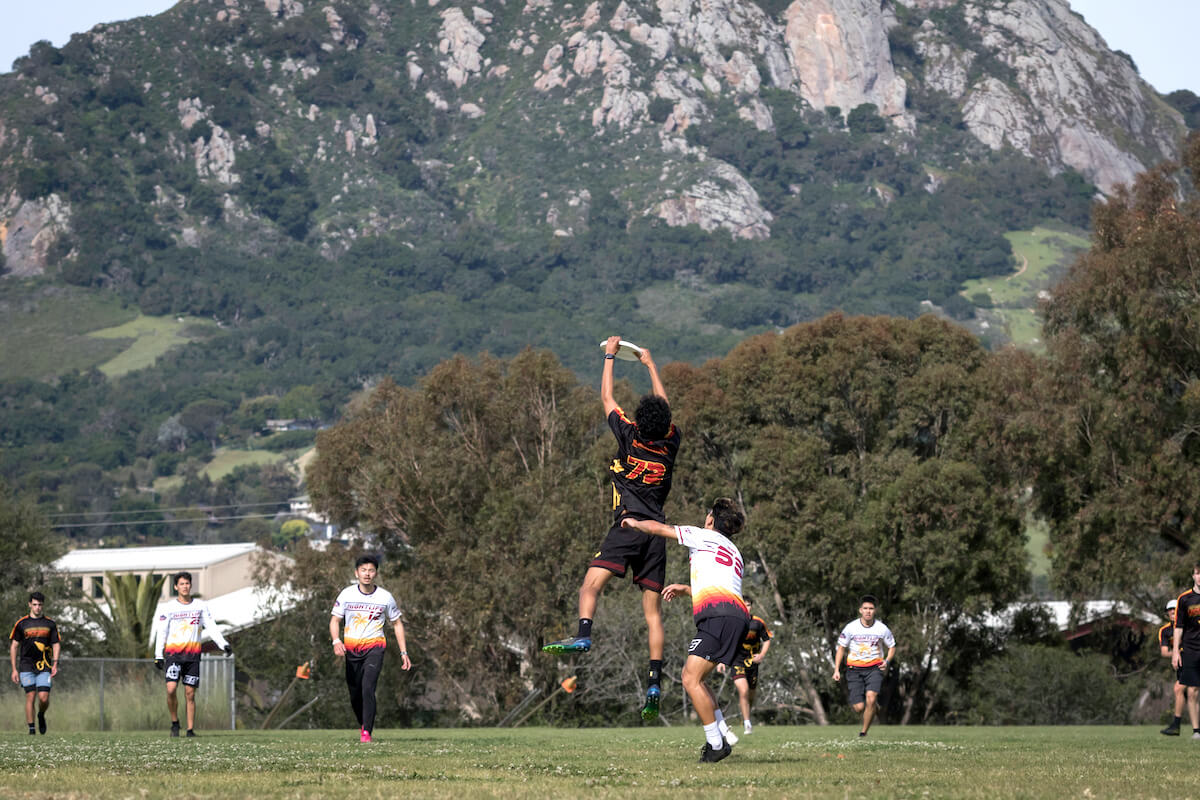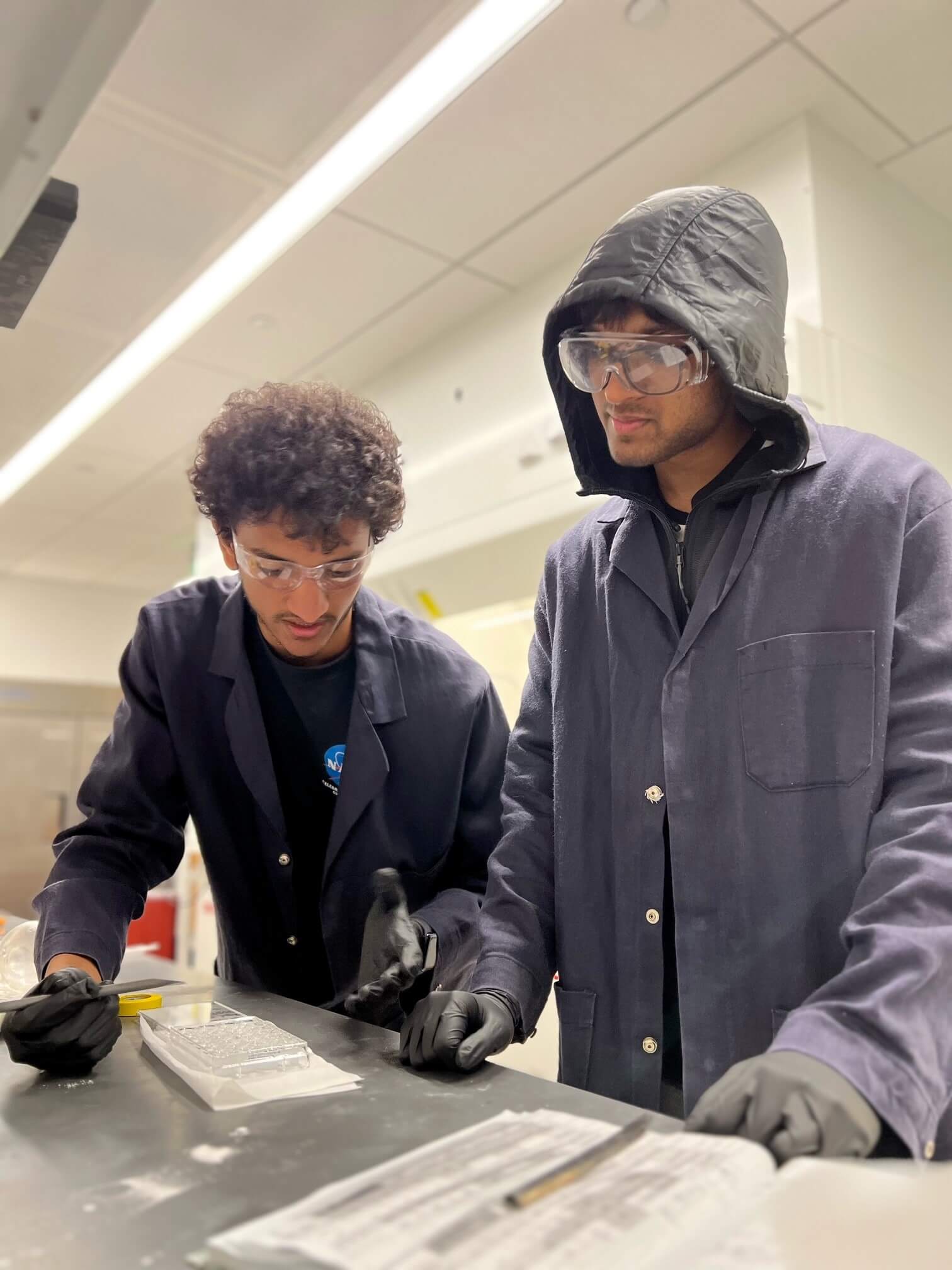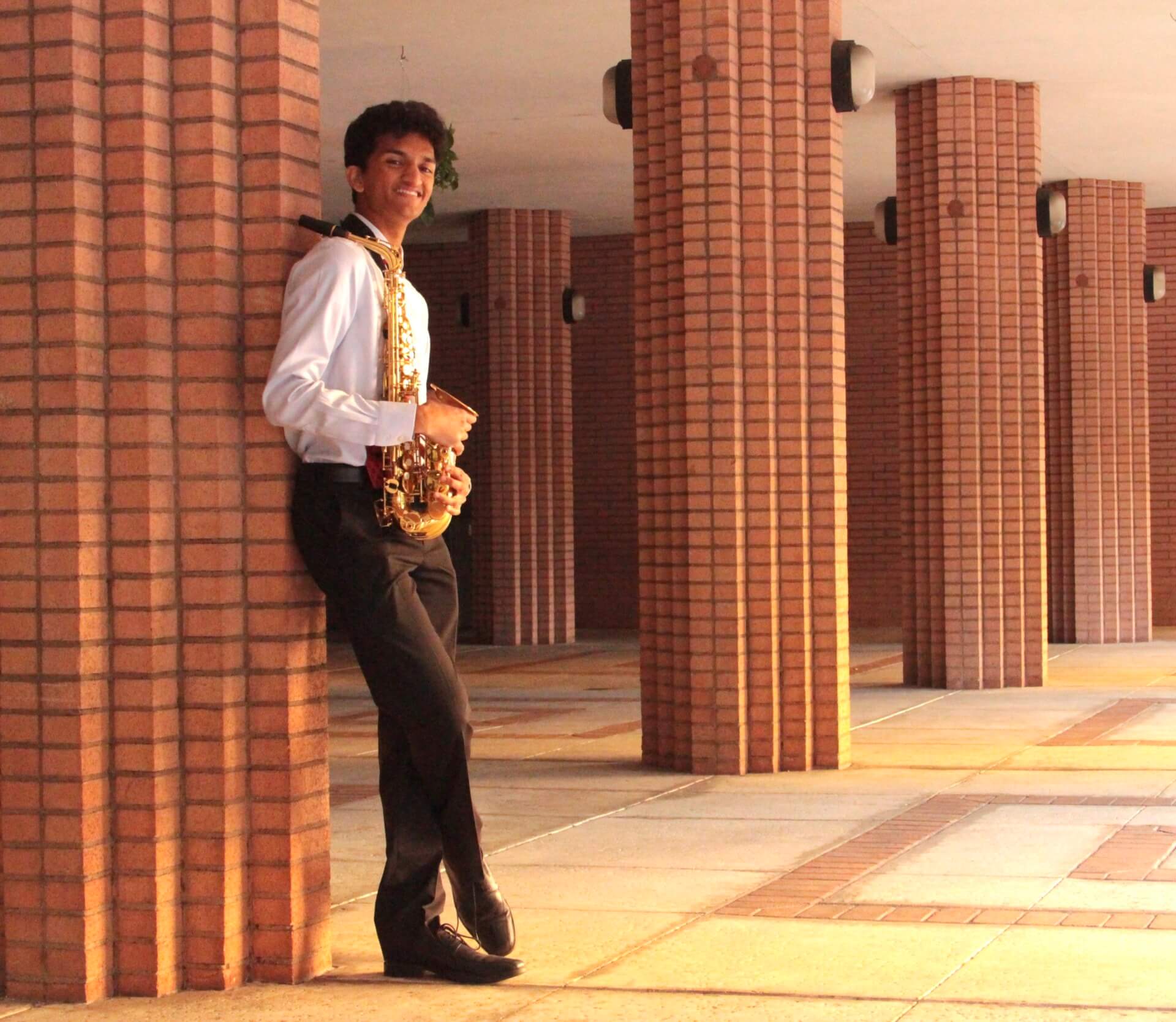
Hari Sridhara catching during a USC Ultimate Frisbee game. Image/Meg Hofner, UltiPhotos
Whether leaping through the air to catch a soaring frisbee, performing classical saxophone arias, or crafting nanoparticles for biological applications, college life has been action-packed for Hari Sridhara (B.S. Chem Eng ‘23).
The graduating chemical engineering senior from the Mork Family Department of Chemical Engineering and Materials Science has been conducting undergraduate research within the Armani Lab, researching the stiffness of nanoparticle hydrogels. He was recently awarded a highly competitive Nationals Science Foundation Graduate Research Fellowship, which will be invaluable as he pursues his graduate research career in materials science.
But when he’s not working hard in the lab, he can be found out on the field jumping, throwing, and running at lightning speed as a captain of the USC Men’s Ultimate Frisbee team. The fast-paced sport has been a vital outlet for Sridhara during his rigorous college schedule.
“I can count on that group of people to not talk about work or school,” Sridhara said. “I can show up to practice. I can have a great time playing a sport that I love and use that as a way to de-stress, in addition to gaining another great group of friends.”

USC Viterbi Chemical Engineering senior Hari Sridhara. Image/Vikram Deepak
Sridhara first fell in love with Ultimate Frisbee when he was an eighth grader in his hometown of Naperville, Illinois, a suburb west of Chicago. There, he used to compete for his school while also spending his afterschool hours playing casual pickup games with his friends.
“It’s a unique sport in that it pulls rules and elements from soccer and football, but it also values equity more than any other sport I’ve seen,” Sridhara said.
Sridhara said that Ultimate Frisbee was designed to be very inclusive, with the mixed, co-ed divisions of the sport the most competitive leagues at a national level, as opposed to the men’s divisions that tend to take the spotlight in many other sports. For Sridhara, the USC Ultimate Frisbee community had been an important social and athletic lifeline, providing him with some of his most rewarding college experiences.
“The biggest draw for me was finding a community united by a common goal,” Sridhara said. “We’re all at practice at 10 pm on a Wednesday night running sprints. What else would have you out at such an obscure time, doing such an arduous task? But we all know that we are doing it together to perform our best at our next tournament, so it’s that shared responsibility that brings us together and makes us such close friends.”
From sky-high sporting feats to cutting-edge nanoparticle research

Sridhara working in the Armani Lab with Vidhur Senthil. Image/Andrea Armani
Sridhara was relaxing with his roommates late one March evening when a life-changing message hit his inbox. He had just been awarded a prestigious NSF Graduate Research Fellowship on the strength of his work within the lab of Ray Irani Chair in Chemical Engineering and Materials Science Andrea Armani.
“I didn’t really know how to process it, because I hadn’t mentally prepared myself to receive it that early,” Sridhara said. “The fellowship gives me tons of flexibility, jump-starting my career and my research path, which is exciting.”
Over the past year, Sridhara has worked with his Armani Lab collaborators on a research project to create magnetic iron oxide nanoparticles and incorporate them into a hydrogel system. From there, the researchers harnessed a magnetic field to manipulate the stiffness of the hydrogel. Sridhara said that once the project leaves the hands of the lab’s chemical engineers and materials scientists such as himself, the work has potential future applications in important biological fields, like cancer research.
“The properties of these gels have parallels with biological or cellular specimen and environments,” Sridhara said. “If we can shift the mechanical properties of the gel— their stiffness — by exposing them to a magnetic field, we can model the dramatically stiffened environments found in advanced cancers. The transparency of the gels also allows for real-time imagining and analysis”
Sridhara has been working in the Armani Lab since the fall of his junior year. He enjoys the interdisciplinary nature of the group, with its mix of students from chemical engineering, chemistry, biomedical engineering, electrical engineering and more. The invaluable experience, along with the support of the NSF graduate research fellowship, is something he will take with him as he pursues his Ph.D. in materials science and engineering at the Georgia Institute of Technology in Atlanta.
“Last summer, I was working full time in the lab, and that was probably the switch that needed to be flipped for me to commit to pursuing a Ph.D.,” Sridhara said. “I was operating as a full-time researcher and given the autonomy and responsibility of running experiments, making decisions, and analyzing data. I thought this was a viable path I could see myself on for the next five years.”
A breadth of campus experiences

Sridhara plays the classical saxophone and completed a minor in music. Image/Ryan Alimento.
Throughout his undergraduate degree, Sridhara remained highly engaged in the Mork Department community via the USC chapter of the American Institute of Chemical Engineers (AIChE), where he served as president the past year.
Sridhara also enhanced his college experience by playing badminton, taking stand-up comedy classes and completing a minor in music. A keen saxophonist of 12 years, Sridhara found himself drawn to the structure of classical music, as opposed to the freeform improvisation of jazz saxophone.
“When you play classical saxophone, you’re playing what’s on the page, the correct notes and rhythms. This is great for my STEM-oriented brain, but I can still put my emotional spin and style onto a piece and perform in a more creative and artistic sense,” Sridhara said.
Overall, Sridhara has enjoyed approaching college life with curiosity, engaging in an interesting variety of research and extracurricular pursuits, and not pushing too far in a single direction.
“There are lots of things across the board that I find myself dabbling in to give myself a holistic college experience, and I have really enjoyed the four years I spent here,” Sridhara said.
Published on May 9th, 2023
Last updated on May 9th, 2023







